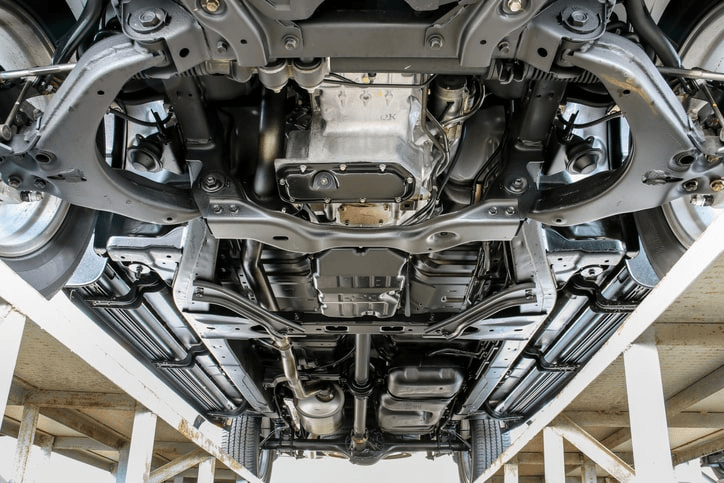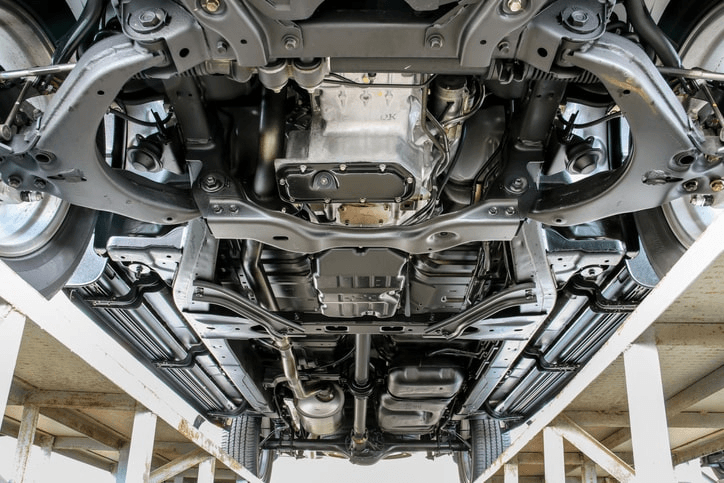
Power Steering & Chassis Repair
If your vehicle's ride is no longer as smooth as it once was or if the power steering lacks its typical precision, there might be something wrong with either the power steering column or chassis. It’s important to not let this problem linger as the damage will only worsen over time. Chassis repair, auto frame straightening, frame repair, and power steering service can all be relevant solutions.

Find Meineke Near You
Frame Straightening
Technicians know the ins and outs of every part that makes the chassis operate: shocks, struts, sway bar, and torsion bar. A vehicle's chassis is generally characterized as the bottom frame, yet it also includes the vehicle's running gear that creates movement. The transmission, engine, differential, driveshaft, and suspension are critical to the chassis' operation. Frame straightening might be needed.
Chassis Repair
Sometimes only a minor repair is needed to bring the chassis back to proper functionality. In other instances, more serious repairs are necessary. Technicians will make sure to check your vehicle's driveshaft, CV joints, universal joints and axles during the vehicle inspection.
Power Steering Repair
If you are experiencing steering problems, have a technician check your power steering column for leaks and other faults. They can also perform a power steering flush and inspect the belts to ensure proper tension. If one component of the power steering system is not functioning as designed, the performance of the vehicle can be easily compromised.
Unsure Steering & Car Chassis Issues?
Be sure to bring your vehicle to your local Meineke Car Care Center at the first sign of any steering problems. A trusted technician will make any necessary repairs and ensure your car is handling safely and properly.
